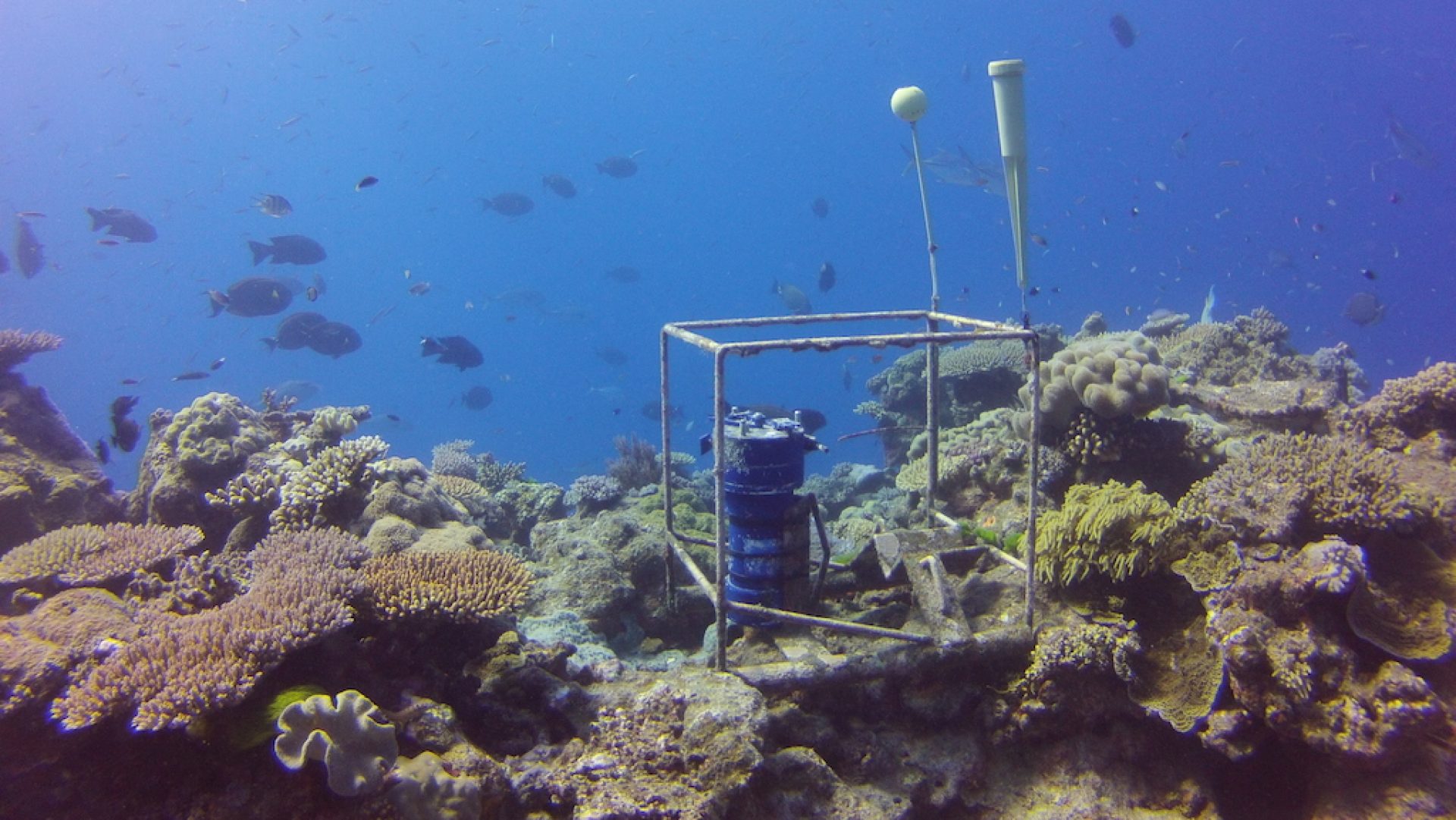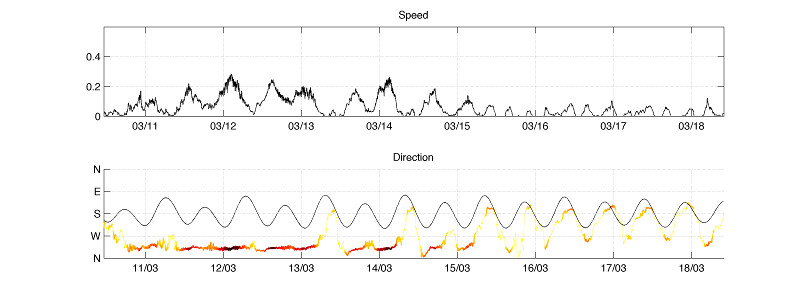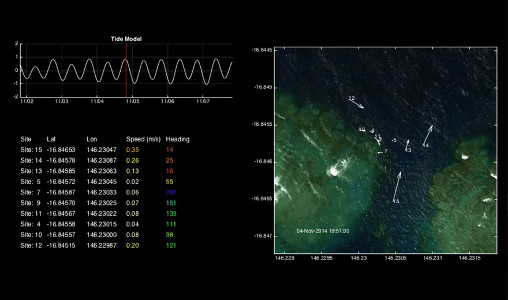Current Meter: Marotte HS
The Marotte HS (High Sampling Rate) is our next generation drag-tilt current meter. It features a new housing and custom electronics developed in-house. The sensitivity of speed measurements has been increased, while the addition of a magnetometer allows for direction measurement without having to know the orientation of the instrument when deployed.
Instrument Features
Simple To Use
Just insert the SD card and turn the power switch on and logging begins. No more wondering whether the instrument has been launched properly.
Improved Tilt Sensor
The tilt sensor uses both an accelerometer (tilt) and magnetometer (compass) enabling accurate direction measurements without needing to know the orientation of the device when deployed.
Tough ABS Enclosure
The injection moulded enclosure improves sensitivity at low speeds while reducing vortex formation at high speeds.
High Sample Rate
The instrument can sample up to two times per second, and do sub-sample averaging. This allows measurement of long wave periods. Higher sampling rates are available on request.
Large Storage Capacity
Data are recorded on an 8GB Micro SD card. Compromising on deployment length or sampling rate is no longer necessary. Five to six month deployments at 1Hz are no problem.
Efficient Power Supply
The instrument is powered using two standard Alkaline AA batteries, and no charging or expensive replacement is required. Due to an efficient power supply, the instrument can operate at 1Hz sampling for five to six months at on a single set of batteries.
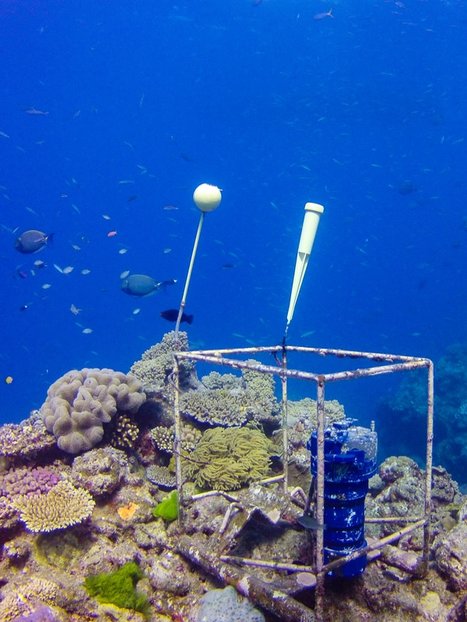
Applications
Local Hydrodynamics at Coral Reefs
The affordable and easy-to-deploy Marotte HS is particularly well suited to high spatial density deployments. Marine Biologist Eric Fisher of JCU Cairns has used Marottes quite effectively to gather current data around Moore Reef in the Great Barrier Reef.
The video to the left shows some interesting local currents caused by the reef structure. Eric Fisher's research investigates relationships between reef hydrodynamics and fish aggregations. Follow this link to read more about Eric Fisher's research.
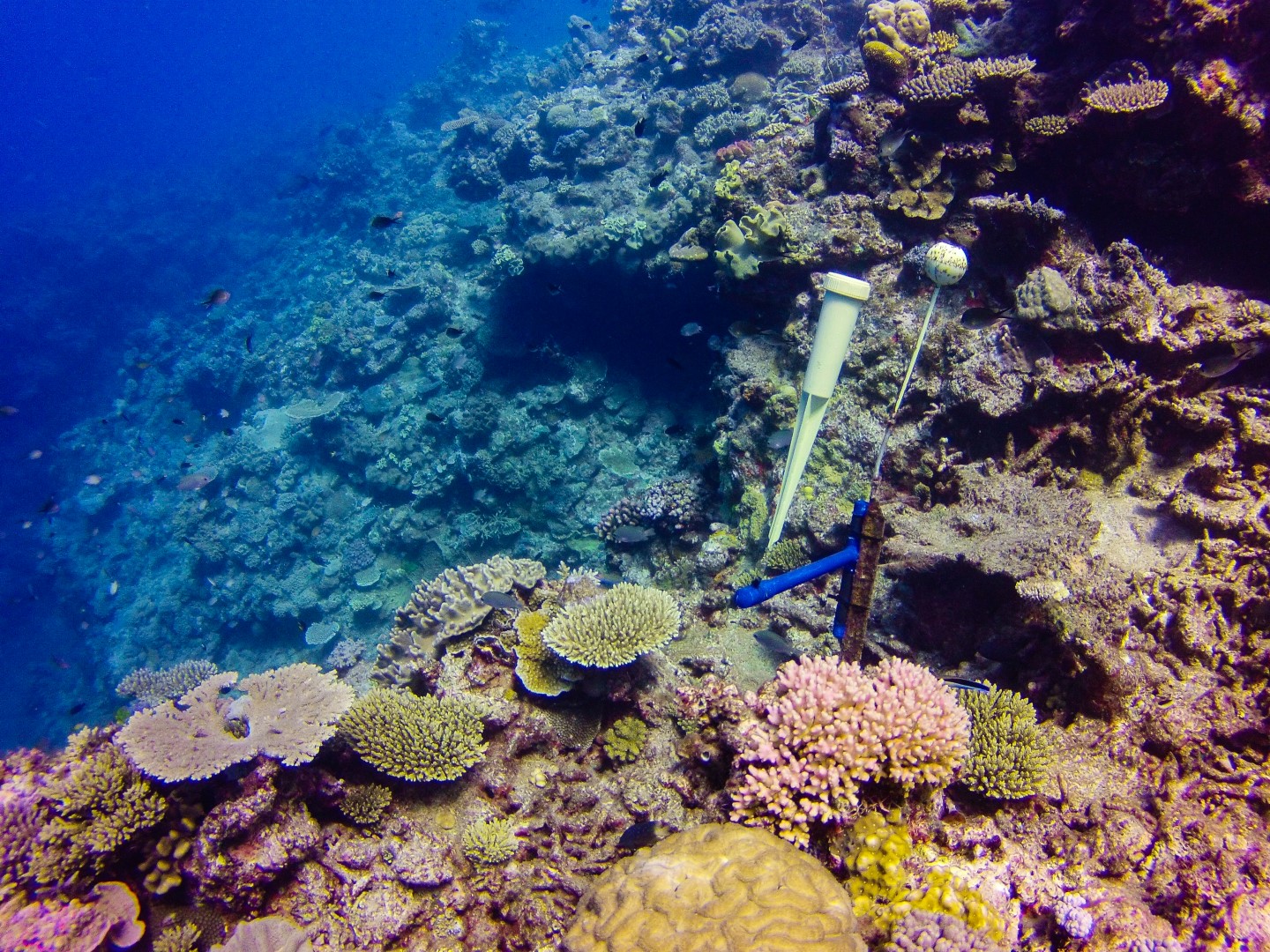
Aquaculture
The Marotte HS is currently being used in marine aquaculture operations in Fiji, Kiribati and Samoa to study small scale hydrodynamics at seaweed farming and fishing locations. Working for the Joint ACIAR (Australian centre for international agricultural research) and JCU (James cook university) diversification of Seaweed Industries in Pacific Island Countries project, marine Scientist Ian Tuart is training local fisheries staff and researchers in the use of the Marotte HS at multiple locations around extensive marine aquaculture seaweed farming sites and traditional seaweed fishery sites. The current speed and direction data collected by the Marotte HS has been logged continuously at some sites for more than 1.5 years. This data was used to determine the flow regime over the seaweed sites; giving greater understanding to the variation in seaweed growth which can empower seaweed farmers to better determine the potential for an aquaculture site or in the case of seaweed fisheries to have a better understanding as to why a seaweed fishery has large changes in production levels. Follow these links (MACRO - the Centre for Macroalgae Resources & Biotechnlogy, Diversification of seaweed industries in Pacific Island countries) for more detailed information.
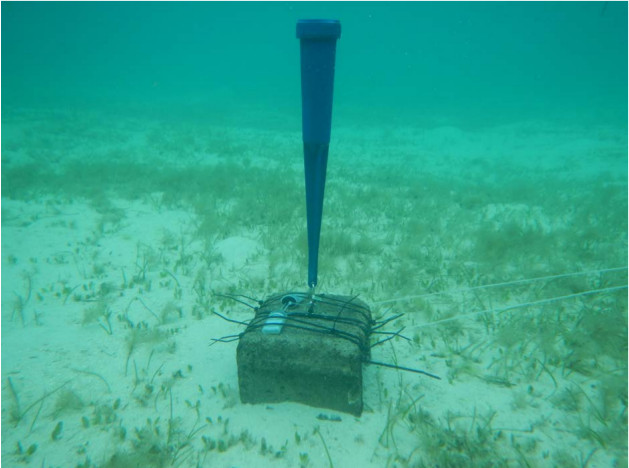
Environmental Monitoring of River Flows
Using costly oceanographic equipment for studies of small creeks and estuarine rivers can be particularly concerning to researchers and consultants on tight budgets. The high volume recreational traffic in these narrow waterways make it difficult to establish a secure mooring for a logging instrument.
Environmental consultants have used the Marotte HS as part of an environmental impact assessment for projects in the Solomon Islands. A re-purposed brake-drum mooring together with a single Marotte HS certainly presents a less risky alternative to traditional equipment in this environment.
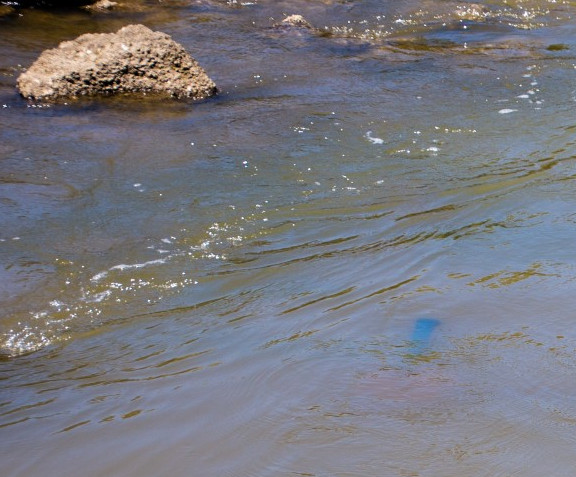
Education
The simple user interface and low price point of the Marotte HS make it an ideal tool to introduce marine science students to the concept of marine instrumentation. Dr John Crosby of the Tabor Academy in Massachusetts has been using Marotte HS current meters together with other low-cost marine sensors to teach students the power of instrumentation in research and the understanding environmental dynamics.
Example Data
The raw data collected with the Marotte HS is first processed using MGL's custom software to calculate water speed and direction values and perform some smoothing to reduce the file size. Further processing of the data may be performed with Excel, R, MATLAB (or other software) to generate easy-to-read plots of time-series current data and to extract wave spectrum information from the current meter signal. The top 2 images below represent datasets collected at Moore Reef, Australia and were generated using the MATLAB scripts available for download here. The last 2 images of "rose plots" represent random example data and are generated using the new R scripts available for download here. The first image shows how the current speed and direction varies with time with the variations in direction being shown as different colours. The second image shows the wave spectrum plotted on a 2D colour plot with the most dominant wave periods shown as dark red and least dominate wave periods as blue.
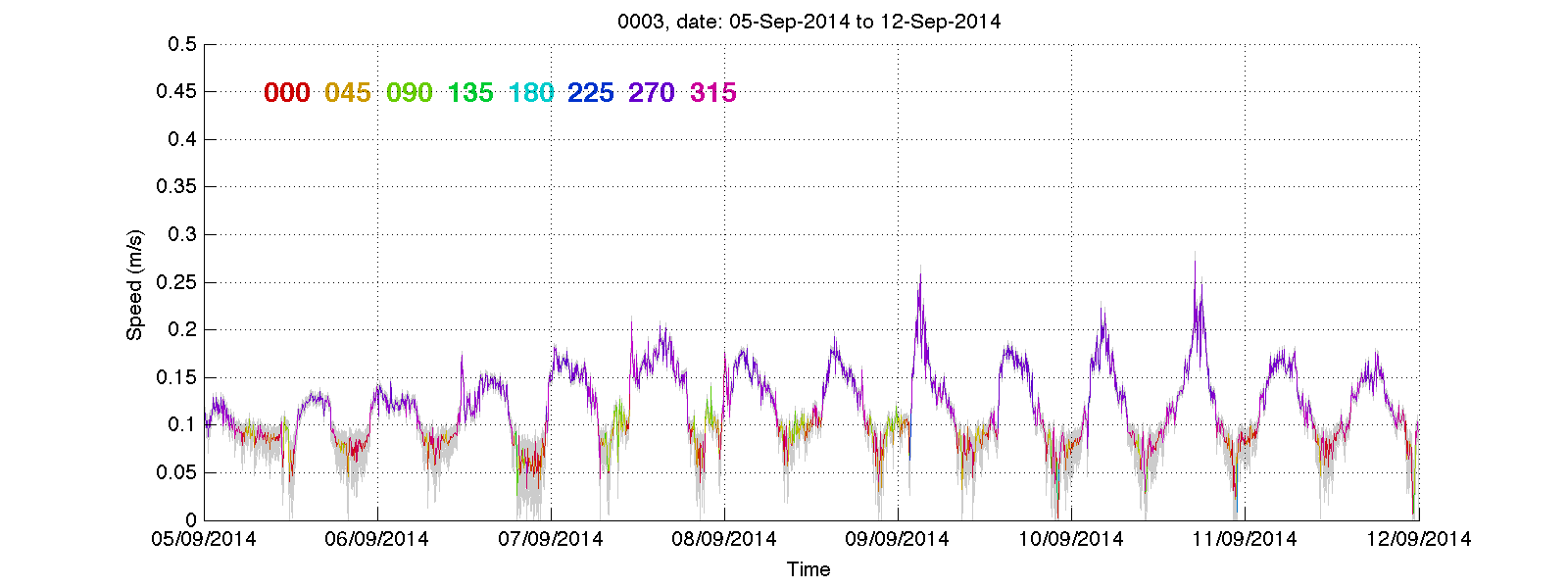
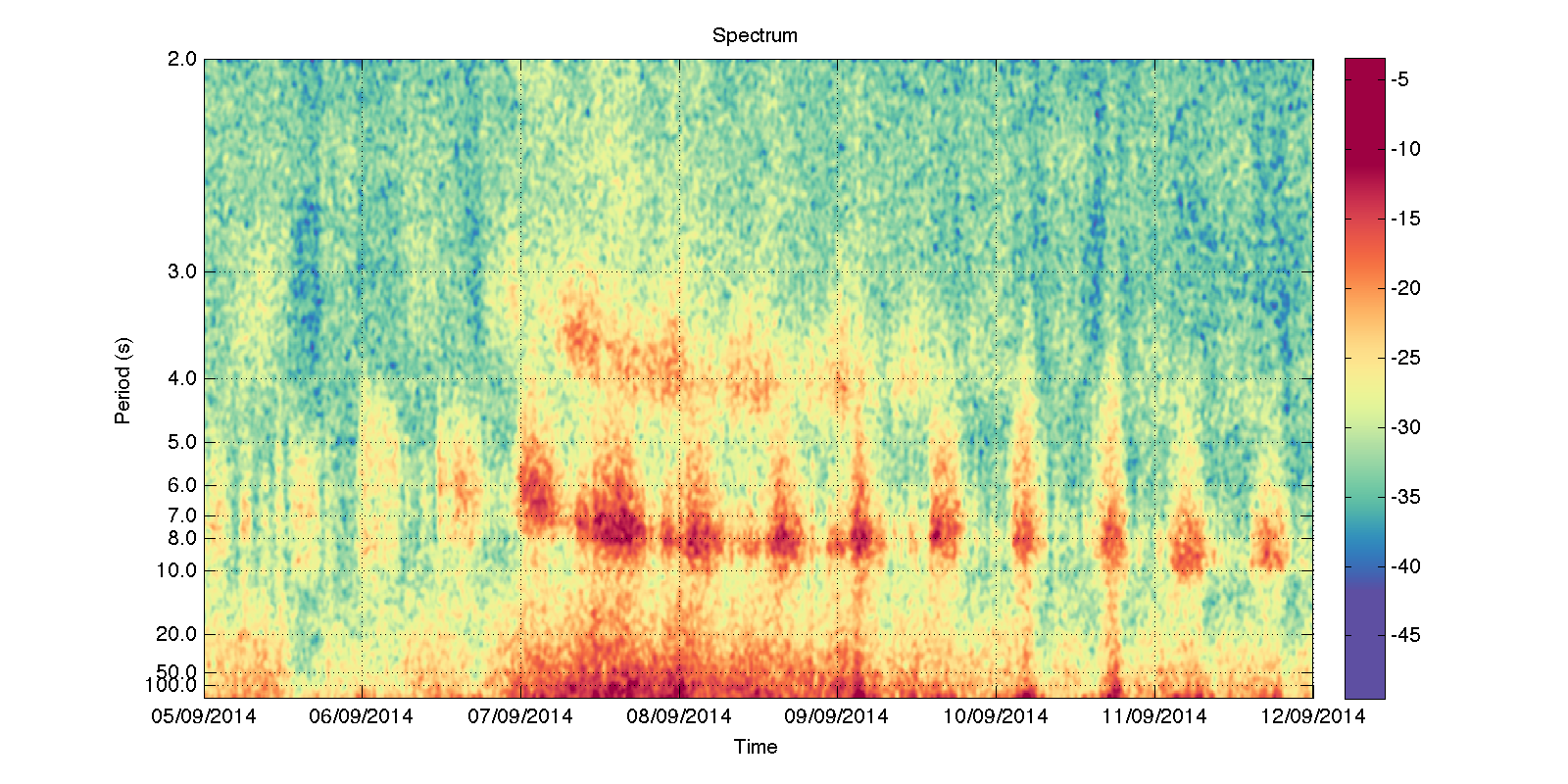
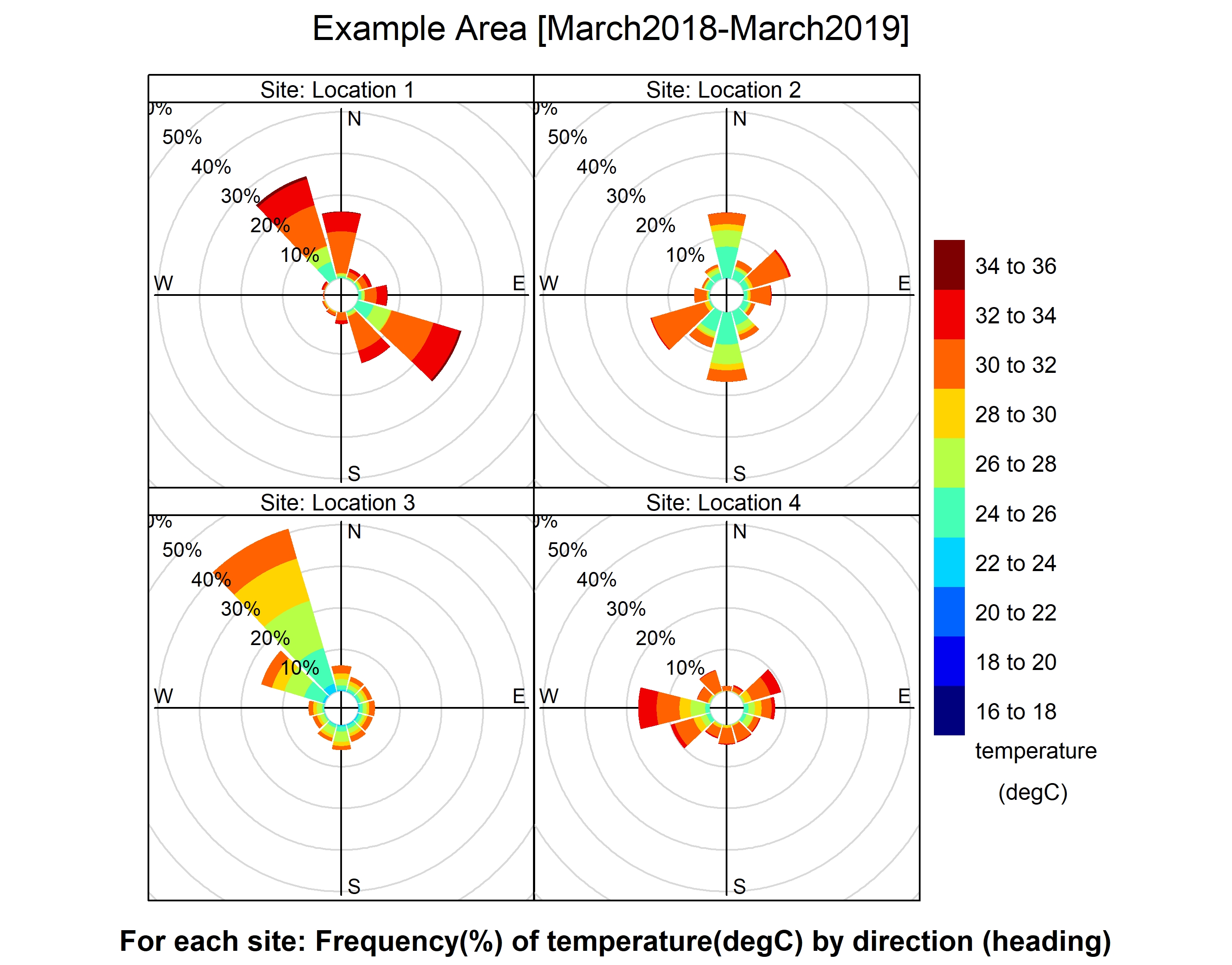
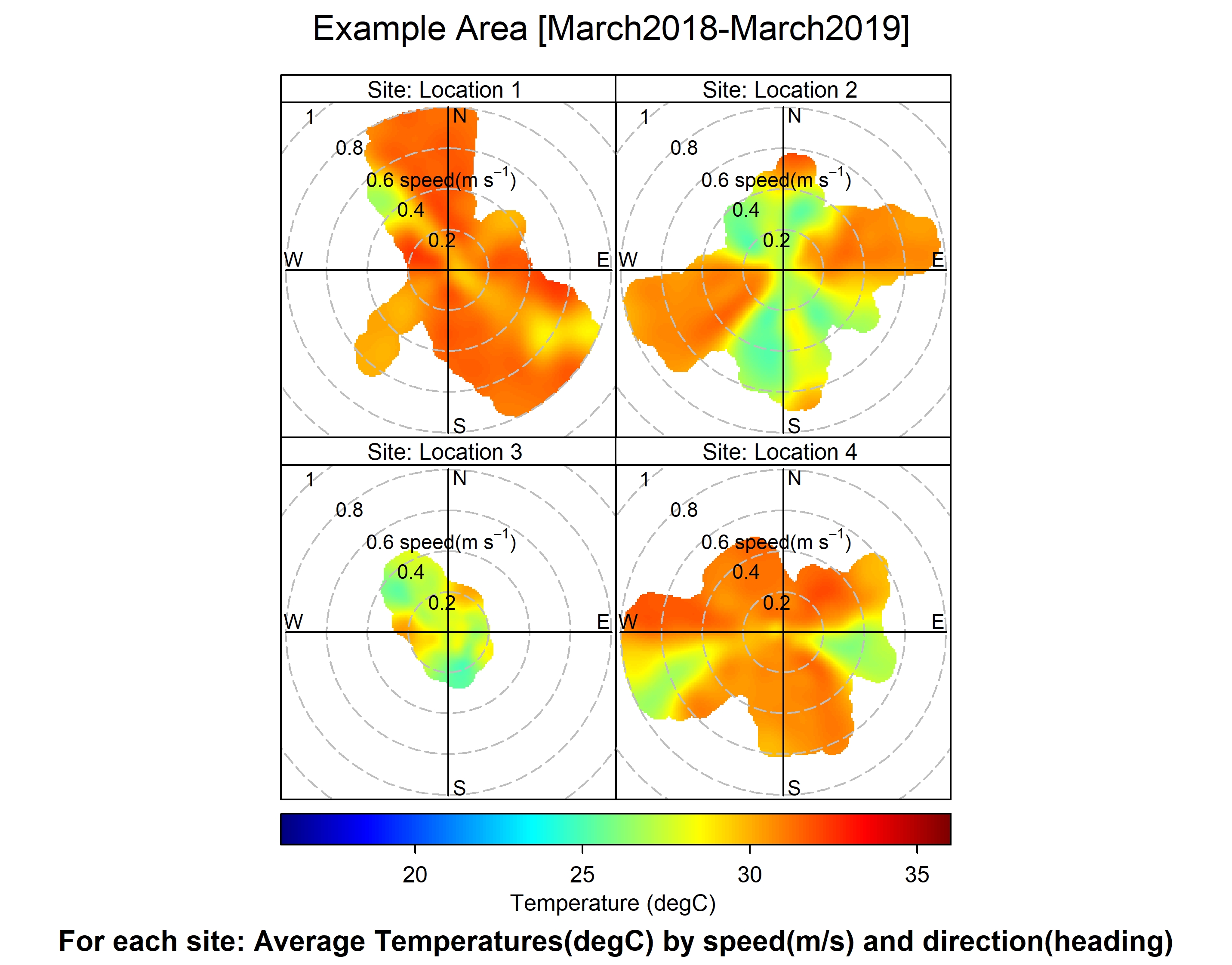
Pricing and Shipping Information
Our instruments are designed and manufactured in Townsville, Australia and all goods ship from here. Our pricing schedule is printed below with larger orders attracting significant discounts. All prices are quoted in Australian Dollars and do not include Australia's Goods and Services Tax (GST). International customers are exempt from GST, however domestic customers will be charged 10% of the total cost of the goods. International customers may be incurred tax or customs duty by their local authorities.
1 x Marotte HS
A$950
per intrument
1 x
Marotte HS
A$950
per instrument
2 x Marotte HS
A$920
per instrument
3 x Marotte HS
A$890
per instrument
4 x Marotte HS
A$860
per instrument
5 x Marotte HS
A$830
per instrument
1 x Marotte HS
A$950
per intrument
6 x Marotte HS
A$800
per instrument
7 x Marotte HS
A$770
per instrument
8 x Marotte HS
A$740
per instrument
9 x Marotte HS
A$710
per instrument
10 x Marotte HS
A$650
per instrument
Service and Repairs
Contact us for a formal quote and consultation
*Please be aware that the Marine Geophysics Laboratory is not responsible for import taxes, duties, or permits that may be required for purchases outside of Australia.
